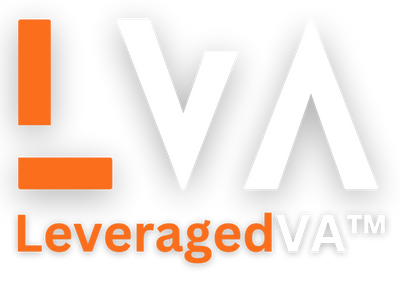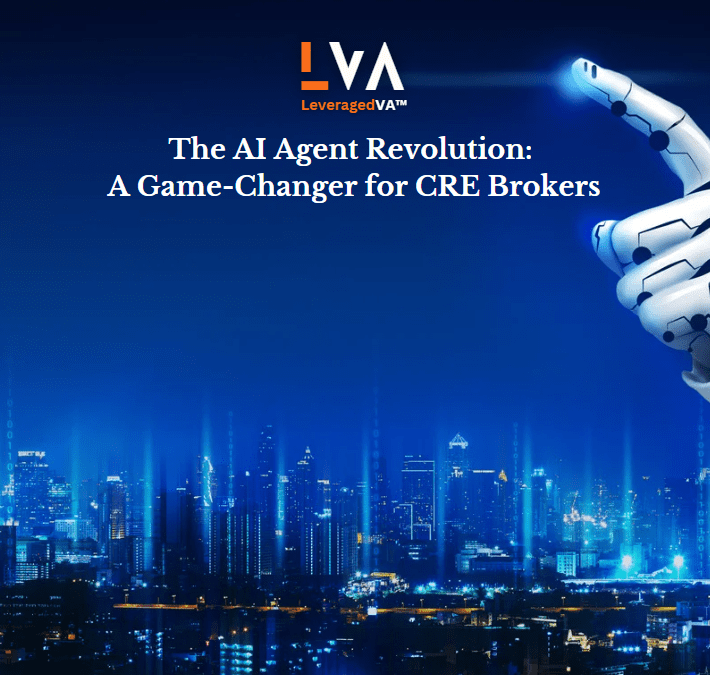
by Phill Tomlinson | Feb 27, 2025 | Blog
Hiring a virtual assistant (VA) comes with many advantages, including flexibility and cost-effectiveness. But when it comes to holidays, many business owners wonder: Should your VA be expected to work during these times? Navigating this conversation with respect for cultural differences, clear communication, and fairness is crucial to maintaining a positive working relationship.
Understanding Different Cultural Holidays
One of the benefits of hiring a VA, particularly from regions like the Philippines, is access to a global talent pool. However, this also means that your VA may observe different holidays than you. Understanding and respecting these holidays is important when managing expectations.
For example, if you’re working with a virtual assistant from the Philippines, be aware of local holidays such as Christmas, New Year, and Holy Week. These are significant celebrations where your VA might expect time off.
How to Handle Cultural Differences:
- Research the holidays observed in your VA’s home country
- Ask your VA upfront about their holiday preferences and availability
- Be clear about your own business holiday schedule and expectations
Mutual understanding of each other’s holiday practices is essential for setting expectations from the start.
Setting Clear Expectations Early
When hiring a VA, it’s important to set expectations regarding holiday work well in advance. During the onboarding process, clarify your business’s holiday schedule and whether you expect your VA to be available during those times. Similarly, ask your VA about the holidays they observe and their availability during those periods.
Key Questions to Ask:
- Which holidays are you planning to observe?
- Are you willing to work during major holidays if needed?
- Should we plan in advance to manage workloads during holidays?
By addressing this early on, you avoid misunderstandings and ensure that both parties are on the same page.
Compensation for Holiday Work
If you do require your VA to work on a holiday, it’s only fair to compensate them accordingly. Offering higher pay for holiday work is standard practice, and it shows that you value their time and effort. Consider offering a holiday bonus or a higher hourly rate if they agree to work on a major holiday.
For instance, if your VA agrees to work during Christmas or New Year’s, paying them a higher rate or providing a holiday bonus is a good way to acknowledge their commitment.
Holiday Pay Best Practices:
- Offer a higher hourly rate or bonus for holiday work
- Consider offering time off in lieu if they work during a holiday
- Be clear about how and when holiday pay will be applied
Providing extra compensation creates a fair working relationship and ensures your VA feels appreciated for going the extra mile.
Balancing Workload During Holidays
One way to manage holiday workloads is to plan ahead. If you know that certain holidays will impact your VA’s availability, consider adjusting deadlines or redistributing tasks. This can prevent last-minute scrambling and ensure your business continues to run smoothly.
Strategies for Managing Holiday Work:
- Use a virtual assistant tool to schedule tasks in advance, ensuring they’re completed before the holidays
- Prioritize time-sensitive tasks early so your VA can enjoy their time off
- Consider temporary help or backup assistance during high-demand holiday periods
For example, if you know your VA won’t be available during a specific holiday, make sure any urgent tasks are completed beforehand, or explore the option of hiring an additional VA to cover the gap.
Offering Flexibility and Understanding
It’s important to approach holiday work with flexibility. Your VA may not be available during every holiday, and expecting them to work all the time can lead to burnout. Offering flexibility, such as allowing them to take extra time off after a holiday if they work during it, can go a long way in building a strong working relationship.
Examples of Flexibility:
- Allow your VA to take an additional day off after a holiday
- Offer flexible working hours during holiday seasons
- Let them choose which holidays they prefer to take off
This understanding fosters a positive work environment, even when you need to ask for extra support during busy times.
Maintaining Work-Life Balance
Remember, your VA deserves a healthy work-life balance just like any other employee. Allowing them time off to spend with their family and recharge is essential for their well-being. Ensuring your VA feels respected and valued, even during busy holiday periods, strengthens your working relationship in the long term.
Importance of Work-Life Balance:
- A balanced workload prevents burnout and keeps your VA motivated
- Allowing time off during holidays shows respect for their personal life
- A well-rested VA is more productive and efficient when they return to work
Giving your VA the space to enjoy their holidays will pay off in terms of loyalty, productivity, and overall job satisfaction.
Conclusion: Holiday Work and Mutual Respect
Deciding whether to expect your VA to work over the holidays comes down to clear communication, mutual respect, and fairness. By understanding cultural differences, setting expectations early, and offering fair compensation, you can navigate holiday work with ease. Flexibility and respect for your VA’s work-life balance will go a long way in maintaining a strong, positive working relationship.
In the end, a happy and well-rested VA will contribute more effectively to your business, ensuring long-term success.

by Phill Tomlinson | Feb 18, 2025 | Blog
AI agents are advancing at a breathtaking pace, reshaping industries—including commercial real estate (CRE). This evolution has profound implications for how CRE professionals manage workflows, analyze data, and interact with clients. From text-based automation to predictive AI, these advancements are streamlining processes, optimizing efficiency, and unlocking new opportunities in the industry.
Phase 1: Text-Based AI Agents in CRE
The journey began with text-based AI agents, where brokers and investors could leverage AI-powered platforms to generate property descriptions, draft contracts, and automate emails. Tools like ChatGPT and CRM-integrated AI assistants have made it easier to respond to client inquiries, conduct market analysis, and handle administrative tasks.
For CRE professionals, text-based AI has been a game-changer in saving time and reducing the effort spent on repetitive documentation. By simply inputting natural language prompts, brokers can generate reports, financial summaries, and even property marketing materials in seconds.
Phase 2: Voice-Based AI Agents in CRE
The next step in AI evolution introduced voice-based AI agents, enabling hands-free interactions with technology. Virtual assistants like Siri, Google Assistant, and voice-integrated CRM systems allow brokers to dictate notes, schedule property showings, and retrieve market data using simple voice commands.
In an industry where brokers are often on the go—conducting site visits, attending meetings, and negotiating deals—voice AI reduces the need to stop and type, making business operations more fluid. Imagine asking an AI, “What are the latest comps in this neighborhood?” and receiving an instant market analysis, all while driving to a property showing.
Phase 3: Brain-Computer Interfaces and CRE Decision-Making
While still in development, brain-computer interfaces (BCIs) hold the potential to further revolutionize CRE decision-making. BCIs would enable brokers and investors to interact with AI simply by thinking, removing the need for physical inputs.
In the future, BCIs could allow for real-time analysis of investment opportunities, instant portfolio adjustments, and even mental commands to generate contracts or proposals. This phase of AI interaction will redefine efficiency, providing instant access to market insights without breaking focus on negotiations or client meetings.
Phase 4: Predictive AI Agents in CRE
Perhaps the most exciting advancement in AI technology for CRE is predictive AI agents. These systems analyze behavioral patterns, market trends, and economic indicators to anticipate future real estate needs. Instead of reacting to market shifts, brokers and investors can stay ahead with AI-driven insights.
Predictive AI in CRE will:
- Identify Investment Opportunities: AI can scan vast amounts of market data to highlight properties with high growth potential before they hit the market.
- Optimize Deal Flow: By analyzing client preferences and deal history, AI agents can suggest the best opportunities for investors, reducing time spent on research.
- Automate Lead Follow-Ups: AI will proactively engage with prospects, schedule meetings, and even send personalized updates based on buyer interest.
- Enhance Property Management: AI-driven automation will anticipate maintenance needs, tenant behaviors, and optimal lease structuring for maximum profitability.
Conclusion: AI’s Role in the Future of CRE
As AI agents evolve from text-based assistants to predictive systems, their role in the CRE industry will continue to expand. From handling administrative work to making strategic investment decisions, AI is shifting the way brokers, investors, and property managers operate.
The future of AI in commercial real estate is not just about efficiency—it’s about transformation. AI will empower professionals to make data-driven decisions faster, automate critical processes, and create a more seamless experience for clients. Those who embrace AI’s evolution will stay ahead in an increasingly competitive and technology-driven market.
Our teams, both LeveragedCRE and LeveragedVA, effectively leverage AI daily to optimize multiple tasks, enhancing productivity and efficiency. We’ve currently integrated 8 different AI automations into our weekly workflow, to streamline our operations. Taking it a step further, we’re in the process of developing an innovative 20-Agent Voice-Based AI System, that will be designed to help our team and Virtual Assistants save an additional 20–30 hours per week.
If you’re curious about how this works and want to explore how these tools can benefit your business, we’d love to connect with you! Click here to schedule a quick discovery call or visit our website at LeveragedVA.com for more details.

by Phill Tomlinson | Feb 17, 2025 | Blog
Onboarding a new virtual assistant (VA) is an exciting time for any business. A VA can help ease your workload and handle essential tasks, allowing you to focus on growing your business. However, the onboarding process is critical, not just for getting your VA up to speed, but also for ensuring neither you nor your VA burns out during the transition. Without proper planning, you may overwhelm your VA or stretch yourself too thin while trying to manage the onboarding process.
The Importance of a Thoughtful Onboarding Process
Onboarding is about more than just training; it’s about setting your VA up for long-term success. A well-structured onboarding process gives your VA the tools, guidance, and support they need to understand your business, meet expectations, and perform their tasks efficiently. A rushed or disorganized onboarding can lead to confusion, frustration, and even burnout—both for you and your VA.
Why Burnout Happens During Onboarding:
- Overwhelming Amount of Information: Bombarding a VA with too much information too quickly can make them feel overwhelmed.
- Lack of Clear Instructions: Without clear instructions, your VA may struggle to prioritize tasks, leading to stress.
- Unrealistic Expectations: Expecting immediate results without allowing time for adjustment can lead to frustration and burnout.
By focusing on a step-by-step approach, you ensure that your VA learns at a manageable pace and that tasks are properly handled.
Gradually Pacing the Transition
One of the most common mistakes during onboarding is trying to offload too much work onto the VA right away. While it may be tempting to quickly assign a large workload, it’s important to start small and gradually scale up.
Tips for Pacing the Transition:
- Begin with Simple Tasks: Start by assigning straightforward tasks like email management, scheduling, or data entry. This gives your VA time to get comfortable with your systems.
- Increase Complexity Over Time: As your VA becomes familiar with your business, gradually introduce more complex tasks like customer support or project management.
- Monitor Progress: Keep track of how your VA is handling their workload. If they seem overwhelmed, reassess the pace and adjust expectations as needed.
A gradual approach allows your VA to build confidence while ensuring tasks are completed correctly.
Setting Realistic Expectations
It’s easy to assume that your VA will hit the ground running from day one, but this can be a recipe for burnout if they don’t have enough time to adjust. Setting realistic expectations from the start is crucial.
How to Set Clear Expectations:
- Clarify Deadlines: Be specific about when tasks should be completed and which tasks are most urgent.
- Communicate Job Responsibilities: Clearly outline what is expected in each role. This prevents confusion and helps your VA prioritize their workload.
- Allow Time for Learning: Your VA will need time to learn your business systems, processes, and tools. Don’t expect perfection right away.
Being transparent about timelines and expectations helps your VA manage their workload effectively without feeling pressured to deliver too quickly.
Providing Guidance and Resources
To avoid burnout, it’s essential to provide ongoing guidance and resources to help your VA succeed. A VA who feels supported is more likely to thrive in their role and avoid burnout.
Key Resources to Offer:
- Training Materials: Offer step-by-step guides, video tutorials, or written documentation that your VA can refer to.
- Access to Tools: Ensure your VA has access to all necessary tools, like project management platforms, communication tools, and a virtual assistant tool to manage tasks.
- Regular Check-ins: Schedule regular check-ins to discuss progress, address questions, and provide feedback. These check-ins allow your VA to feel connected and supported.
Supporting your VA through proper resources ensures they can perform their job without feeling overwhelmed.
Recognizing Early Signs of Burnout
Burnout doesn’t happen overnight—it builds up over time. Recognizing the early signs of burnout allows you to address issues before they become problematic.
Common Signs of Burnout:
- Missed Deadlines: If your VA is consistently missing deadlines or struggling to keep up, they may be overwhelmed.
- Decline in Quality: A drop in the quality of work, such as increased errors or incomplete tasks, can indicate that your VA is stressed.
- Lack of Enthusiasm: If your VA seems disengaged or less enthusiastic about their work, it’s a sign they may be feeling burnout.
If you notice these signs, it’s important to check in with your VA, assess their workload, and find ways to alleviate pressure.
Creating a Support Network
Another important way to prevent burnout during onboarding is to create a strong support network for your VA. This means not only offering guidance yourself but also connecting your VA with other team members or resources.
How to Build a Support Network:
- Assign a Mentor: If possible, pair your VA with another team member who can provide additional support.
- Encourage Peer Collaboration: Allow your VA to collaborate with other VAs or employees to share tips, solve problems, and feel part of the team.
- Foster Open Communication: Encourage your VA to voice concerns, ask questions, and offer suggestions for improving the onboarding process.
Having a support network ensures that your VA doesn’t feel isolated during onboarding and can reach out for help when needed.
Conclusion: Onboarding Without the Burnout
Onboarding a new VA can be a smooth and positive experience with the right approach. By pacing the transition, setting realistic expectations, and providing ongoing support, you can avoid burnout for both you and your VA. A thoughtful onboarding process not only sets your VA up for success but also creates a strong foundation for a long-term working relationship.
Avoiding burnout is key to maintaining a productive and motivated VA, which in turn helps your business thrive.

by Phill Tomlinson | Feb 9, 2025 | Blog
Your Path to Stress-Free Deal Closings
Closing a commercial real estate deal is one of the most fulfilling yet challenging tasks for brokers. With numerous moving parts, it’s easy to overlook critical details, risking delays, client dissatisfaction, or even failed transactions. However, a comprehensive CRE Deal Closing Checklist can transform this daunting process into a streamlined, efficient, and stress-free experience.
By using this checklist, you’ll not only streamline your process but also gain peace of mind, boost your reputation, and free up more time to focus on closing even more deals.
Pre-Closing Phase: Laying the Foundation for Success
1. Buyer’s Financial Strength
Qualifying your clients’ financial strength is essential to ensure your deal doesn’t stall at the last minute. Here’s a good way to get in front of this:
- Proper expectation saves a lot of time down the road. Make sure the client has realistic expectations on price points and timing.
- Verify the buyer’s buying power: Ensure they are pre-qualified or connected with a reliable CRE lender.
- Coordinate with the lender: Get a clear timeline for financing approval.
- Understand lender timelines: Knowing how long the lender will need to close helps avoid surprises.
A strong financial strategy ensures that financing issues won’t derail your closing date.
2. Contract Management
Well-managed contracts prevent miscommunication and costly delays. Here’s what to prioritize:
- Draft and review the purchase agreement: Ensure all clauses are in place and understandable.
- Negotiate terms: Advocate for your client’s interests while ensuring both parties agree.
- Collect all signatures: Double-check that all required parties have signed.
- Monitor contract deadlines: Use a CRM or calendar alerts to avoid missing key dates.
Keeping contracts organized ensures that all terms are clear and legally binding, reducing the risk of disputes.
3. Due Diligence
Due diligence is one of the most detail-oriented steps, requiring careful planning and follow-through:
- Check zoning compliance: Confirm that the property complies with local ordinances.
- Organize property documents: Ensure all leases, surveys, and environmental reports are collected in an easy-to-access folder. We recommend you use cloud storage.
- Schedule property inspections: Coordinate with vendors for smooth inspections.
- Review inspection reports: Address any potential issues early in the process.
- Verify title status: Resolve any title defects promptly.
- Search for liens: Investigate any financial claims or encumbrances on the property.
- Ensure documentation is in order: Verify that al parties provide the required documents promptly.
Getting these steps right will eliminate last-minute surprises and keep the transaction on schedule.
Closing Phase: Executing with Precision
4. Documentation
Preparing and reviewing all necessary documents ahead of the closing date prevents unnecessary hiccups:
- Review the closing statement: Ensure the final numbers match expectations.
- Examine the title commitment: Double-check that all title issues have been resolved.
- Compile closing documents: Store everything securely for easy retrieval.
Being meticulous with documentation builds trust and ensures transparency for all involved.
5. Final Checks
Before the deal closes, double-check the following:
- Confirm all critical dates on the closing process.
- Conduct a final property walk-through: Verify that the property is in the agreed condition.
- Ensure contingencies are met: Confirm that any contingencies (such as repairs) have been resolved.
- Double-check all dates and numbers: Go through documents one more time to avoid clerical errors.
These steps help avoid last-minute misunderstandings and provide confidence heading into the final signing.
Post-Closing Phase: Wrapping Up and Strengthening Relationships
6. Wrap-Up Tasks
The closing might be done, but your responsibilities aren’t over. Here’s what you need to do next:
- Distribute copies of closing documents: Send them to all relevant parties.
- Transfer keys and access codes: Ensure the buyer gets access to the property without delay.
- Confirm the deed is recorded: Verify that the title company has completed the recording process.
- Create an online closing folder or a local binder: Keep organized records for easy future reference.
Handling these tasks promptly ensures a smooth transition for all parties involved.
7. Follow-up to Strengthen Client Relationships
Post-closing follow-up is crucial for building long-term relationships that lead to referrals and repeat business:
- Send thank-you notes: A small gesture that leaves a big impression.
- Update your CRM: Log the transaction details and set reminders for future follow-ups.
- Schedule follow-up calls: Check in with your client to ensure satisfaction.
- Request testimonials or referrals: Use positive client experiences to grow your business.
Maintaining communication after the deal closes shows professionalism and care, boosting your reputation and increasing your chances of future referrals.
The Hidden Challenges: Managing the Stress Behind the Scenes
Even with a checklist, brokers often face unexpected challenges. Here are some common obstacles:
- Overwhelming volume of tasks: Juggling multiple deals can leave you stretched thin.
- Interruptions and distractions: It’s hard to focus on details when new leads and prospects demand your attention.
- Time-consuming document management: Organizing paperwork takes hours, cutting into your prospecting time.
- Inconsistent communication: Staying on top of updates with clients, lenders, and title companies requires constant vigilance.
Without the right systems, brokers risk burnout, missed deadlines, and lost deals.
How Top CRE Brokers Close Deals with Confidence
Imagine closing every deal with complete peace of mind—knowing that no detail has slipped through the cracks. Here’s how successful brokers master their closing process:
- Stay organized and proactive: Use checklists and CRMs to track tasks and deadlines.
- Delegate efficiently: Virtual assistants (VAs) can handle administrative tasks, allowing you to focus on high-value activities.
- Communicate clearly and consistently: A professional approach at every stage leaves clients feeling secure and satisfied.
With this ultimate CRE deal-closing checklist, you’ll never miss a critical step again. By following the checklist, staying organized, and leveraging tools and/or VAs, you can close deals smoothly, impress clients, and position yourself as a leader in the commercial real estate industry.
Transform Your Deal-Closing Process with LeveragedVA
The most successful brokers have mastered the art of managing their deal-closing process while simultaneously expanding their business. Our exclusive LeverageVA program offers a streamlined, done-for-you solution to sourcing Virtual Assistants (VAs) for Commercial Real Estate (CRE) brokers. We provide all the essential tools to help you get up and running in just a few weeks. Our program includes comprehensive training for both the CRE broker and the VA, ensuring a smooth integration for both parties. We also teach you how to implement the system seamlessly and scale your success effectively.
With expert strategies and tools, you’ll not only close deals faster but also free up time for what matters most—building relationships and finding new opportunities.


by Phill Tomlinson | Feb 3, 2025 | Blog
Cold calling in sales might sound like a scary task, but it’s actually a secret weapon for commercial real estate (CRE) brokers. Imagine being a superhero with a phone instead of a cape, ready to save the day by making connections and closing deals. Let’s dive into why cold calling is super important and how it can make you a real estate rockstar!
Why is Cold Calling Script for CRE Brokers Important?
- Direct Connection: Cold calling allows you to connect directly with decision-makers. Instead of waiting for someone to stumble upon your website or ad, you take the first step. It’s like knocking on doors to sell cookies; you reach people who might not even know they need your help.
- Building Relationships: In the CRE industry, relationships are everything. Cold calling helps you start conversations and build relationships from scratch. Even if the person you call isn’t interested right away, you’ve planted a seed for future business.
- Learning the Market: Cold calling helps you understand the market better. When you talk to different people, you learn about their needs, preferences, and challenges. This knowledge makes you smarter and better prepared to offer solutions.
- Finding Hidden Opportunities: Sometimes, the best deals are hidden. Cold calling can uncover properties that aren’t listed publicly or clients who are thinking about selling but haven’t taken any steps yet. It’s like finding a hidden treasure!
The Magic of Consistency
Consistency is key when it comes to cold calling. Making one call a day might not bring huge results, but making 10 or 20 calls a day can lead to big opportunities. Think of it like planting seeds in a garden. The more seeds you plant, the more flowers you’ll grow.
Overcoming the Fear of Cold Calling
Many people fear cold calling because they’re afraid of rejection. But here’s the trick: don’t take it personally! Not everyone will be interested, and that’s okay. Every “no” gets you closer to a “yes.” Remember, even superheroes face challenges, but they never give up!
How to Make a Successful Cold Call
- Be Prepared: Know who you’re calling and why. Have a clear goal for the call, whether it’s setting up a meeting or getting more information about a property.
- Be Polite and Professional: A friendly tone goes a long way. Introduce yourself, explain why you’re calling, and be respectful of their time.
- Ask Questions: Engage the person by asking questions about their needs and preferences. This shows that you care about helping them, not just making a sale.
- Follow Up: If the person is interested, follow up with an email or another call. If they’re not interested, thank them for their time and move on. Always leave the door open for future conversations.
Results of Cold Calling
- More Deals: The more people you call, the more deals you can close. It’s a numbers game. The more swings you take, the more home runs you hit.
- Stronger Network: Cold calling expands your network. You never know who you’ll meet or how they can help you in the future. It’s like building a web of connections that can support your business.
- Boosted Confidence: The more you cold call, the more confident you’ll become. You’ll get better at handling objections, asking the right questions, and closing deals. Confidence is contagious and will help you in all areas of your business.
Conclusion
A cold calling script for CRE brokers is more than just a tool—it’s a proven strategy to connect with decision-makers, build relationships, and close deals. With the right approach, cold calling can unlock hidden opportunities and help you thrive in the competitive world of commercial real estate.
To download the Cold Calling Script, head over to our free CRE Skool community
https://sites.leveragedva.com/checkout/Cold-Calling-Script-For-CRE-Brokers
Start making the calls that transform your business today. Your next big deal could be just one call away!

by Phill Tomlinson | Jan 20, 2025 | Blog
Introduction: The CRE Paradox
In commercial real estate (CRE), success often feels tied to long hours and personal sacrifices. Many brokers believe that working around the clock is the only way to thrive in the industry. But what if you could achieve financial success while reclaiming your personal life? This blog explores the strategies used by top-earning brokers who have cracked the code to a balanced lifestyle and reveals how you too can work less while earning more.
The Myth of the 80-Hour WorkWeek
The Burnout Trap
In the CRE industry, the expectation of working relentless hours is common, but the truth is that burnout rarely leads to sustainable success. Working long hours may provide short-term wins, but it also comes with hidden costs:
- Missed opportunities due to a lack of focus on high-impact activities.
- Damaged relationships with family and clients from being constantly unavailable.
As James, a top 1% CRE broker, puts it:
“I used to think success meant sacrificing weekends and living with constant stress. I was wrong.”
The High-Earner Difference
High-earning CRE brokers approach time differently. Instead of equating success with long hours, they focus on maximizing their hourly value. Studies show that increased downtime and rest improve productivity and lead quality.
- Work-life balance leads to sharper decision-making.
- Leisure time rejuvenates focus, enabling top brokers to close better deals.
Time is Money – Literally
Calculating Your True Hourly Rate
Many brokers undervalue their time, failing to recognize the financial impact of low-value activities. Here’s a simple formula to calculate your true hourly rate:
Annual Income ÷ Total Hours Worked for the Year = Your Hourly Rate.
(Example: $350k ÷ 2,880 hours (60 hrs per week X 48 weeks) = $121.00 per hour)
By knowing their true value, top brokers ensure they focus only on activities aligned with their income goals.
The Art of Saying “No”
One of the most powerful tools of high earners is selective commitment. They don’t chase every opportunity, instead focusing only on deals with the highest potential.
- Say “no” to low-value meetings and projects tactfully.
- Focus on key relationships that align with your long-term goals.
The Power of Leverage
Multiplying Your Efforts
Trying to do everything on your own is a fast track to exhaustion. The key is to leverage other people’s time and expertise to expand your impact.
- Top brokers rely on skilled virtual assistants (VAs) to handle administrative work.
- Outsourcing allows them to scale operations without overloading themselves.
Building Your Dream Team
Brokers at the top of their game don’t do it alone. They strategically build a support team to handle non-core activities.
“Once I learned to delegate, my income doubled and my stress halved.” – Sarah, CRE Broker
Here are the essential roles that top brokers delegate:
- Administrative tasks
- Marketing and lead generation
- Research and market analysis
By outsourcing, brokers free up time to focus on what they do best—closing deals.
Technology – Your 24/7 Employee
Automation is Your Friend
High-earning brokers use automation tools to streamline their workflow. From automated email sequences to transaction management software, technology handles repetitive tasks while you sleep.
- Automation tools help eliminate the need for doing follow-up and tracking manually.
- Lead nurturing systems ensure potential clients remain engaged.
The CRM Advantage
Top brokers obsess over their CRM (Customer Relationship Management) system. It’s the heart of their business, helping them stay organized and responsive.
- Use CRM data to track client interactions and spot deal opportunities.
- Automate follow-ups and reminders to never miss a lead.
The High-Value Focus
Identifying Your Money-Making Activities
In CRE, not all tasks are created equal. High-earning brokers focus on the 20% of activities that generate 80% of their income—a concept known as the Pareto Principle.
- Prioritize lead generation, client meetings, and deal negotiation.
- Minimize time spent on low-value tasks like paperwork or email management.
The Art of Delegation
Tasks that top brokers consistently delegate include:
- Scheduling and administrative coordination
- Marketing tasks such as social media posts
- Cold calling and lead qualification
Delegating effectively requires clear communication and trust, ensuring tasks are completed without micromanagement.
Scaling Your Success
From Solo Act to Business Owner
The most successful brokers don’t just see themselves as employees—they think like business owners. They create systems that allow their business to run smoothly even when they’re not involved.
Creating Predictable Success
Predictable success comes from having systems in place. Top brokers build processes that ensure consistency in how they operate.
- Develop templates and workflows for routine tasks.
- Use standard operating procedures (SOPs) to train new hires quickly.
With these systems, brokers can grow their operations without increasing stress.
Conclusion: Your Path to Working Less and Earning More
The strategies used by high-earning CRE brokers aren’t secrets—they’re mindsets and habits anyone can adopt. Here’s how you can transform your business and life:
- Value your time by focusing on high-impact activities.
- Leverage technology and automation to streamline tasks.
- Delegate strategically to free up your schedule.
- Build systems to create a scalable business model.
Imagine a career where you:
- Close more deals with less stress
- Have time for hobbies, family, and self-care
- Grow your business without burning out
This isn’t a fantasy—it’s the reality for brokers who’ve mastered the art of working smarter, not harder.
Ready to Transform Your Business?
Our exclusive course, “Leverage Your Way to CRE Success,” teaches you how to apply these strategies to your business. Learn how to implement delegation, automation, and high-impact habits to scale your business effectively.








